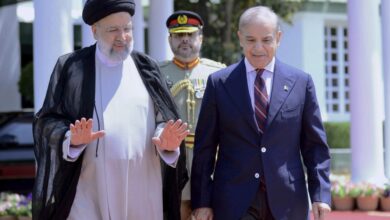Trump backtracks controversial student visa policy
In a shocking inversion of strategy, Trump’s government on Tuesday rescinded a policy that would have constrained out a huge number of foreign students following up with the outspread criticism of the move and amid increasing pressure from universities and significant businesses.
US authorities reported a week ago that overseas students at US schools and universities that had shifted to online-only classes owing to the coronavirus pandemic would need to leave the nation if they weren’t able to move to a school with in-person guidance or physical interaction.
The legislature said it would drop the arrangement in the midst of a legal battle brought by colleges. In any case, a senior US Department of Homeland Security (DHS) official said the organization, despite everything, planned to give a guideline in the coming weeks tending to whether international students can stay in the United States if their classes move onto the digital platforms.
There are over a million international students at US schools and colleges, and numerous schools rely upon income from these students, who frequently pay the full educational costs.

The July 6 move by the government caught off-guard numerous colleges and schools that were all the while making arrangements for the fall semester, attempting to assuage worries about rising instances of the novel coronavirus in numerous US states and the desire amongst students to come back to physical classes.
A whirlwind of lawsuits was filed against the government’s implementation of the rule, including one brought by Harvard University and Massachusetts Institute of Technology and another by an alliance of state governments. Many large conglomerates and schools and colleges filed “friend-of-the-court” briefs opposing the restrictive standards. MIT president L Rafael Reif recognized the significance of international students, saying,
“These students make us more grounded; we will only hurt ourselves if we distance them.”
Harvard intended to hold the entirety of its classes online for the upcoming scholastic year.
President Donald Trump, who is pushing schools the nation over to reopen in the autumn semesters, said he thought Harvard’s arrangement not to hold face to face classes was silly.
The colleges contended the measure was unlawful and would antagonistically influence their scholastic organizations.

In a profoundly anticipated court hearing on Tuesday for the situation brought by Harvard, U.S. District Judge Allison Burroughs in Massachusetts said the U.S. government and the two Ivy colleges that sued, had forged a settlement that would rescind the new policy and reestablish the prevailing status quo.
“The administration has consented to roll back the directive as well as any implementation of the order,”
Burroughs said in a hearing which didn’t even last a full four minutes.
The discussion started after US Immigration and Customs Enforcement (ICE) stated it would restore its rules for foreign students on F-1 and M-1 visas that curtail the number of online courses outside international students can enroll in if they wish to remain in the United States. Those standards had been incidentally waived because of the public health crisis around the world caused by the pandemic. Numerous colleges and universities were under the notion that these rules would be extended, not rescinded.

The pressure to forsake the move developed after Google, Facebook, and Microsoft were among over twelve digital organizations that came out in support of the lawsuit on Monday. Upwards of 17 US states and the District of Columbia had hit the Trump administration with a lawsuit. A gathering of 30 United States Senators and 136 Congressmen had additionally encouraged President Trump to turn the directive around.
The DHS official said the subtleties of any future guidelines on this issue are still being talked about.
Specifically, DHS authorities are as of yet still deciding if they should treat international students currently studying in the United States as of now in unique contrast to the overseas students trying to enter the country for the first time, as per the official.
California Attorney General Xavier Becerra, who was leading separate legal action against the visa rules, said in a written proclamation,
“Trump’s “random activities” put the health and well-being of the communities of international students in danger. Amidst a financial and public-wellbeing emergency, the government must not bother disturbing Americans or burn through everybody’s time and assets with perilous policy choices.”
Despite the fact that the order has been revoked, in any case, some are yet not sure of the welcome they might get in the US, given the administration’s made an anti-immigration stance, said Narayanan Ramaswamy, national head, education, KPMG India.
“Students are worried there is no assurance that some other new mandate won’t come. Along these lines, except if any student has paid the tuition or got into a much-pined course, numerous who had begun investigating progressively stable countries after the July 6 order will probably keep on doing as such.”
Universities have been keeping the individuals who have been admitted into their programs educated about the matter while also pressurizing the administration, a factor that has earned the students’ trust in their decision. What remains to be seen is if the Trump administration will come up with a new directive as is being speculated in the media.






